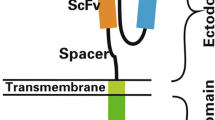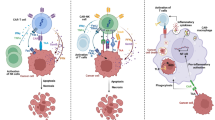Abstract
A number of medical conditions including hematopoietic stem cell malignancies, immunodeficiencies, and autoimmune diseases can be treated using bone marrow cells. However, the major hindrance to the routine use of bone marrow cells is their unparalleled immunogenicity, requiring the use of harsh and toxic preconditioning regimens that can be fatal. Thus, identification of a safer alternative source of hematopoietic stem cells that can be broadly used in such therapies is highly desirable. Despite the current limited number of human ES cell lines, we believe that the newer technology of reprogramming adult somatic cells into pluripotent cells will eventually lead to greater availability of stem cell lines. Even more compelling is the possibility to directly reprogram a somatic cell into another adult cell type of a different tissue without the need for generating pluripotent cells. Here, I will discuss the immunological properties of mouse ES cell-derived hematopoietic progenitor cells. These progenitor cells poorly express MHC class I antigens but are responsive to stimulation by IFN-γ and other cytokines. However, despite upregulating MHC class I antigens after stimulation, they do not express class II molecules, a consequence of their lack of expression of the critical class II transcription factor CIITA. In this overview, I will discuss some of the published data on antigenicity and immunogenicity of ES cell-derived tissues. As more cells and tissues derived from ES cells become available for transplantation, we will gain more insight and into their abilities to interact with immune cells.



Similar content being viewed by others
References
Tabayoyong WB, Salas JG, Bonde S, Zavazava N (2009) HOXB4-transduced embryonic stem cell-derived Lin-c-kit+ and Lin-Sca-1+ hematopoietic progenitors express H60 and are targeted by NK cells. J Immunol 183:5449–5457
Faendrich F, Lin X, Chai G, Schultze M, Ganten D, Bader M, Holle J, Huang D, Parwaresch R, Zavazava N et al (2002) Preimplantation-stage stem cells induce long-term allogeneic graft acceptance without supplementary host conditioning. Nat Med 8:171–178
Bonde S, Zavazava N (2006) Immunogenicity and engraftment of mouse embryonic stem cells in allogeneic recipients. Stem Cells 24:2192–2201
Kyba M, Perlingeiro RC, Daley GQ (2002) HoxB4 confers definitive lymphoid-myeloid engraftment potential on embryonic stem cell and yolk sac hematopoietic progenitors. Cell 109:29–37
Pilat S, Carotta S, Schiedlmeier B, Kamino K, Mairhofer A, Will E, Modlich U, Steinlein P, Ostertag W, Baum C et al (2005) HOXB4 enforces equivalent fates of ES-cell-derived and adult hematopoietic cells. Proc Natl Acad Sci USA 102:12101–12106
Chan KM, Bonde S, Klump H, Zavazava N (2008) Hematopoiesis and immunity of HOXB4-transduced embryonic stem cell-derived hematopoietic progenitor cells. Blood 111:2953–2961
Ledran MH, Krassowska A, Armstrong L, Dimmick I, Renstrom J, Lang R, Yung S, Santibanez-Coref M, Dzierzak E, Stojkovic M et al (2008) Efficient hematopoietic differentiation of human embryonic stem cells on stromal cells derived from hematopoietic niches. Cell Stem Cell 3:85–98
Woll PS, Grzywacz B, Tian X, Marcus RK, Knorr DA, Verneris MR, Kaufman DS (2009) Human embryonic stem cells differentiate into a homogeneous population of natural killer cells with potent in vivo antitumor activity. Blood 113:6094–6101
Tian X, Hexum MK, Penchev VR, Taylor RJ, Shultz LD, Kaufman DS (2009) Bioluminescent imaging demonstrates that transplanted human embryonic stem cell-derived CD34(+) cells preferentially develop into endothelial cells. Stem Cells 27:2675–2685
de Pooter RF, Cho SK, Carlyle JR, Zuniga-Pflucker JC (2003) In vitro generation of T lymphocytes from embryonic stem cell-derived prehematopoietic progenitors. Blood 102:1649–1653
Drukker M, Katz G, Urbach A, Schuldiner M, Markel G, Itskovitz-Eldor J, Reubinoff B, Mandelboim O, Benvenisty N (2002) Characterization of the expression of MHC proteins in human embryonic stem cells. Proc Natl Acad Sci USA 99:9864–9869
Drukker M, Katchman H, Katz G, Even-Tov FS, Shezen E, Hornstein E, Mandelboim O, Reisner Y, Benvenisty N (2006) Human embryonic stem cells and their differentiated derivatives are less susceptible to immune rejection than adult cells. Stem Cells 24:221–229
Hagedorn L, Suter U, Sommer L (1999) P0 and PMP22 mark a multipotent neural crest-derived cell type that displays community effects in response to TGF-beta family factors. Development 126:3781–3794
Sorrentino BP (2004) Clinical strategies for expansion of haematopoietic stem cells. Nat Rev Immunol 4:878–888
Schiedlmeier B, Klump H, Will E, Arman-Kalcek G, Li Z, Wang Z, Rimek A, Friel J, Baum C, Ostertag W (2003) High-level ectopic HOXB4 expression confers a profound in vivo competitive growth advantage on human cord blood CD34+ cells, but impairs lymphomyeloid differentiation. Blood 101:1759–1768
Krosl J, Austin P, Beslu N, Kroon E, Humphries RK, Sauvageau G (2003) In vitro expansion of hematopoietic stem cells by recombinant TAT-HOXB4 protein. Nat Med 9:1428–1432
Zhang XB, Beard BC, Trobridge GD, Wood BL, Sale GE, Sud R, Humphries RK, Kiem HP (2008) High incidence of leukemia in large animals after stem cell gene therapy with a HOXB4-expressing retroviral vector. J Clin Invest 118:1502–1510
Mummery CL, Slager H, Kruijer W, Feijen A, Freund E, Koornneef I, van den Eijnden-van Raaij (1990) Expression of transforming growth factor beta 2 during the differentiation of murine embryonal carcinoma and embryonic stem cells. Dev Biol 137:161–170
Bonde S, Chan KM, Zavazava N (2008) PLoS ONE 3:e3212
Kofidis T, deBruin JL, Tanaka M, Zwierzchoniewska M, Weissman I, Fedoseyeva E, Haverich A, Robbins RC (2005) They are not stealthy in the heart: embryonic stem cells trigger cell infiltration, humoral and T-lymphocyte-based host immune response. Eur J Cardio Thorac Surg 28:461–466
Dressel R, Nolte J, Elsner L, Novota P, Guan K, Streckfuss-Bömeke K, Hasenfuss G, Jaenisch R, Engel W (2010) Pluripotent stem cells are highly susceptible targets for syngeneic, allogeneic, and xenogeneic natural killer cells. FASEB J 24:2164–2177
Preynat-Seauve O, de Rham C, Tirefort D, Ferrari-Lacraz S, Krause KH, Villard J (2009) Neural progenitors derived from human embryonic stem cells are targeted by allogeneic T and natural killer cells. J Cell Mol Med 13:3556–3569
Author information
Authors and Affiliations
Corresponding author
Additional information
This article is published as part of the Special Issue on Immunopathology of Pluripotent Stem Cell Transplantation [33:6].
Rights and permissions
About this article
Cite this article
Zavazava, N. Immunity of embryonic stem cell-derived hematopoietic progenitor cells. Semin Immunopathol 33, 613–617 (2011). https://doi.org/10.1007/s00281-011-0273-9
Received:
Accepted:
Published:
Issue Date:
DOI: https://doi.org/10.1007/s00281-011-0273-9




